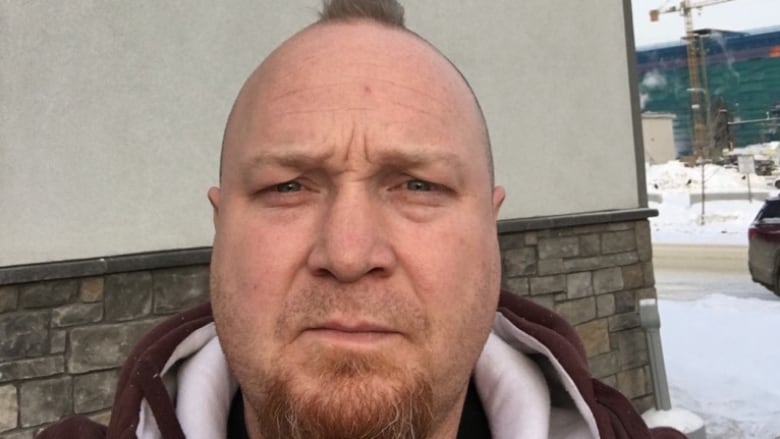This Suncor worker says new fleet of driverless trucks will be a 'big hit' on Fort McMurray

Earlier this week, Suncor Energy in Calgary announced that it's going to introduce more than 150 autonomous electric trucks into its mines over the next six years.
The news means that as many as 400 jobs at the company could be cut in the process.
This is particularly concerning to Steve Kelly, a haul truck driver with Suncor who says the job cuts would have a significant impact on his hometown of Fort McMurray, Alta.
- Suncor driverless trucks will kill 400 net jobs
- I'm worried that driverless trucks will devastate Fort Mac
He spoke to As It Happens guest host Helen Mann. Here's part of their conversation:
How did you first react when you heard about all these job losses?
I was disappointed. Whenever there's job loss in our industry, especially when it's as significant as this, the impacts are wide and vast. You know, it's not just the membership that's going to be impacted. It's also what happens to the community.
Is your own job on the line?
At this point, Suncor has communicated that there is no layoff of permanent employees, so my personal job is good. We're still having conversations with the company as to how future employment will look.

You have called this rollout of autonomous trucks potentially devastating for the local community. Take me through some of the concerns that you have for the future there.
When you look at something like 400 positions, even over a period of time, that's a big hit on a small community like ours. We're a small community under 100,000 people, and we're a tight-knit community.
When you move 400 people from this type of community — especially in the type of downturn climate that we've been in in the last few years — you know, that impacts a lot of people.
It impacts grocery stores when there's 400 less people buying groceries. It impacts, you know, Petro Canada, Suncor's gas. If you don't have a job to buy gas, then there's people not buying gas. It impacts the housing market. You know, there's housing packages that people bought when they were employed by all these companies with the idea of they're going to be here for a long time.
When you talk about a good community partner in a corporation, it's not just about sponsoring a football team or sponsoring a local park. It's also about creating good jobs and creating good environments and making sure that you're giving back to the community that helped build these corporations and are utilizing the resources that they're leasing them from.
- Suncor to begin using autonomous vehicles
- Alberta well-positioned to deal with job losses from automation
Is it true that some of these truck operators were actually helping to create the technology that these new autonomous vehicles will end up using?
As they roll out the technology, I understand that our members need to participate in it in order to make sure that it's safe.
One of the hopes that we would have as a union, as a labour force, is that rather than using technology to eliminate positions, help enhance the positions and help create more work and help doing better things.
While that stuff is rolled out, there will be members who introduce those technologies and ensure that it remains to be safe as it moves on.
How does it feel to have to do that?
I think that's an obvious question. It doesn't feel good.

What would you say to the people who argue that these technological advancements are inevitable? You seem to acknowledge that, but where do you draw the line?
I think technological advancements can help enhance a company, and I think it can help enhance the people that help create that company. I think if there's a better partnership between the workforce and the advancements, you can get better operations and better extraction processes.
Often, people hear about how productive these autonomous trucks are. If given the same conditions to our people that are in the man fleets that these autonomous units are running in, I'm sure we'd be more productive as well. It's two different running conditions, two different operating services and we're constantly stressing, give us the same conditions and give us some opportunities. We can show how productive our workforce can be.
We're constantly stressing, give us the same conditions and give us some opportunities. We can show how productive our workforce can be.- Steve Kelly, haul truck driver
If you can speak directly to Suncor CEO Steve Williams, what would you say?
I would speak to all of the leaders. Let's talk about how we can partner and create better advancements to help enhance our workforce, rather than eliminate it. By doing that, you're creating a good corporate partnership with communities, you're creating better employment and you're helping people maintain jobs that can go and help buy all the products that we're creating.
This is about maintaining that good relationship with not just your workforce, but your community, and everybody around you. We want to work with the company and make sure that that's the kind of stuff we're working toward in the future.
Steve Kelly's conversation with Helen Mann has been edited and condensed for clarity. You can listen to the full conversation above.